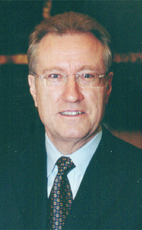Mr. Speaker, absolutely not. I agree with exactly what the Prime Minister said. That is what we have taken into consideration. All of this is subject to proper scrutiny and review. Judicial review can certainly determine whether there is any need for tightening up any of the provisions in terms of where we apply this law. However it requires that we be reasonable and be confined to dealing with that which is in fact lawful and in the jurisdiction of the Government of Canada and the Canadian forces.

